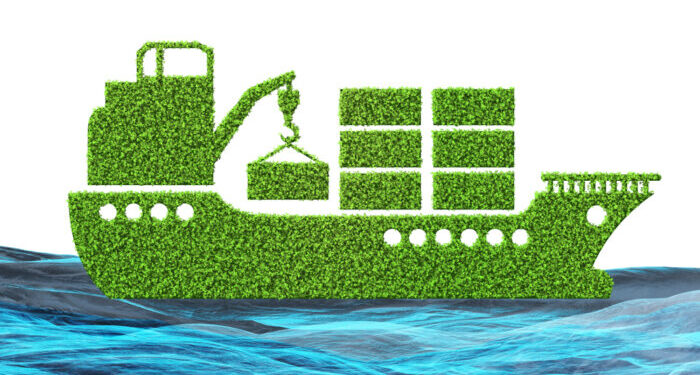January 10, 2022 Maritime Safety News
Danish frigate Esbern Snare, seen here on patrol in the Gulf of Guinea, released three pirate suspects after regional authorities refused to take them. [Anders Fridberg / Forsvaret]
States in the Gulf of Guinea region must take responsibility and step-up prosecution efforts when pirates are apprehended by international navies, said BIMCO today.
The statement came following the release of three suspected Nigerian pirates who had been held in custody on board the Danish frigate Esbern Snare.
The Danish frigate has been part of an international anti-piracy effort in the Gulf of Guinea to deter pirates since the end of October 2021.
On November 24, special forces from the frigate were involved in a firefight with gunmen in a skiff full of piracy equipment in the waters south of Nigeria.
THE SUSPECTS
Four suspects, including the three who have now been released, were detained on board the frigate. After Denmark failed to find a country in the region to take them, the three were put to sea on Thursday in a small dinghy with enough food and fuel for them to reach shore safely.
They had been charged under Danish law with attempted manslaughter by firing at Danish personnel. They were released after Danish Minister of Justice Nick Hækkerup decided that the indictments should be dropped.
“We have no interest in getting the persons in question to Denmark, where they would have to serve a possible sentence, and where we also risk that they would not subsequently be able to be deported,” said Hækkerup. “Therefore, I have quite exceptionally made the decision to order the prosecution to notify three of the four suspected pirates of a waiver. This means that the three suspected pirates have been set free. They have no connection to Denmark, and the crime they have been charged with has been committed far from Denmark. They simply do not belong here. And that’s why I think it’s the right thing to do.”
The fourth detained suspect had been admitted to a hospital in Ghana as a result of injuries sustained in the confrontation with Danish personnel. Now he has apparently been flown to Denmark after Ghana refused to keep him and the Armed Forces determined that, for health and safety reasons, he could not be released at sea. He was expected to appear before a Danish court today.
BIMCO CALLS ON REGIONAL STATES TO ACT
“The presence of international navies is a very important step in the right direction to keep seafarers safe but establishing a sustainable security situation in the Gulf of Guinea cannot happen without full support of the region,” says BIMCO Secretary General and CEO, David Loosley. “Bringing suspected pirates to justice is best done by regional coastal states. We have seen suspected pirates brought to justice in the region before. International collaboration between regional jurisdictions and non-regional military forces holds a tremendous potential that cannot be missed,”
BIMCO notes that in July 2021, it was reported that a Togolese court had convicted nine men of piracy following an attack on a tanker in May 2019. One of the pirates was sentenced to 15 years in prison while six were each sentenced to 12 years in prison
Since the arrival of international navies with robust mandates, the number of pirate attacks and kidnapped seafarers in the region has dropped significantly. In the fourth quarter of 2020 an estimated 23 attacks were made against merchant ships trading in the Gulf of Guinea while 50 seafarers were kidnapped. By fourth quarter 2021 the numbers had dropped to seven attacks and 20 kidnappings.
The Gulf of Guinea coastal states are increasingly focusing on maritime security and several initiatives are underway. There are however still challenges. As an example, Nigeria’s Deep Blue initiative is still not deployed on active antipiracy operations.
Source: marinelog



